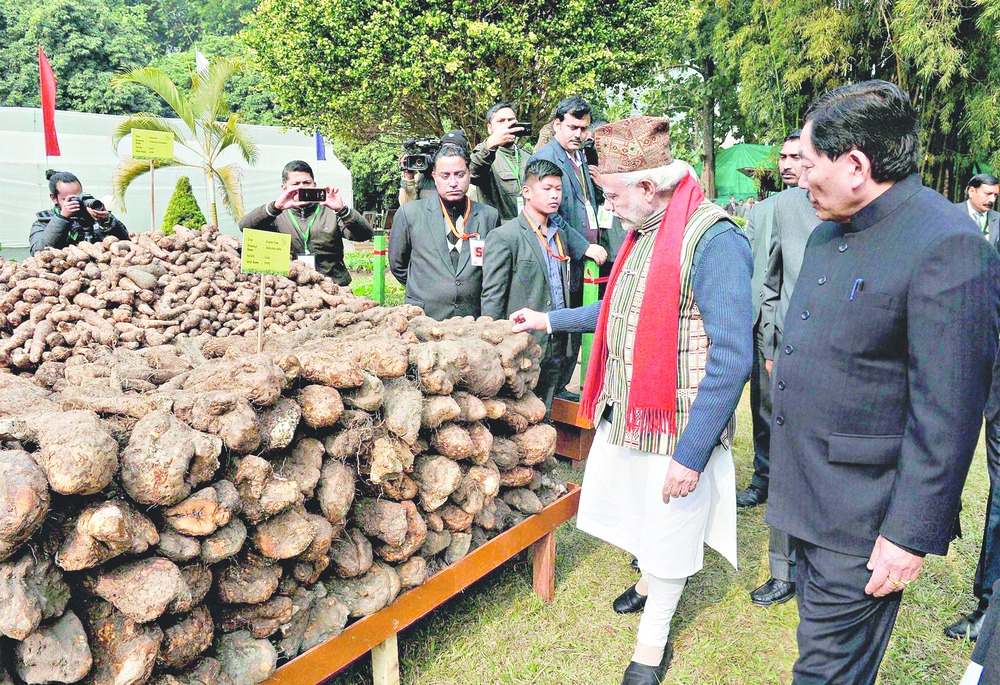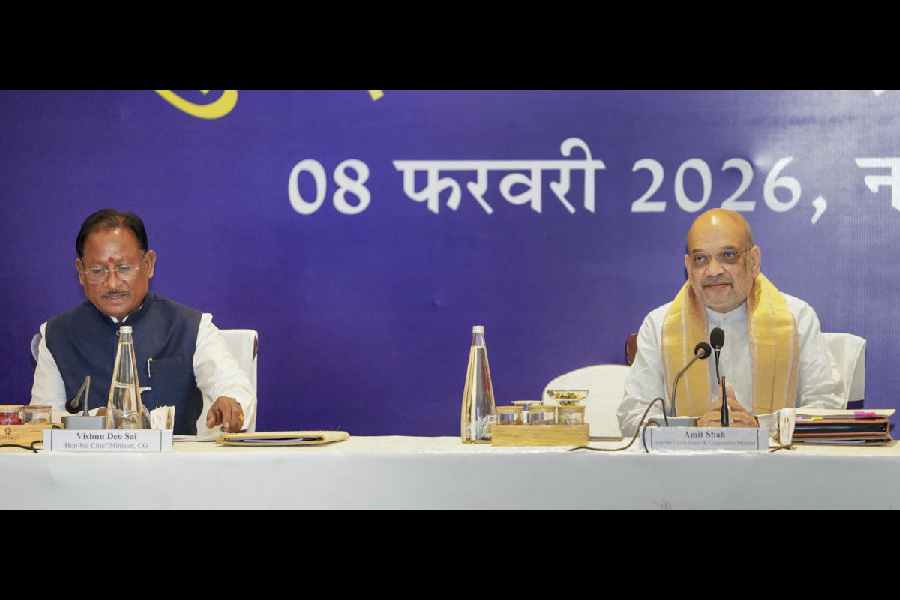
Lucknow, Feb. 19: Prime Minister Narendra Modi today said a cremation ground should also be constructed in a village if a graveyard were made there, citing an uncommon example to articulate how a government should establish its equitability credentials.
"If a kabristan (burial ground) is built in a village, then a smashan (cremation ground) should also be constructed there," the Prime Minister told a rally in Fatehpur, 150km south of Lucknow.
"If electricity is provided there in Ramazan, it should also be given in Diwali," Modi added, took a long pause and continued: "If electricity supply is there during Holi, it should also be given during Id. There shouldn't be any discrimination. It is the duty of a government to be unbiased. Injustice shouldn't be done to anybody... it should never be on the basis of religion or caste or class."
The Prime Minister has touched upon what once used to be a sensitive topic but has largely stayed under the radar of late. Burial grounds and cremation grounds exist side by side in several places in Uttar Pradesh, and charges of encroachment had led to strife in the past.
Wakf boards manage most of the graveyards while the cremation grounds are run by village committees or municipalities. Occasional demands have come from both communities for more land for the conduct of the last rites. However, in the recent past, no demand has been made for a cremation ground just because land has been allotted for a graveyard.
By referring to the places for last rites and religious festivals, Modi appeared to be focusing on the contention that the Akhilesh Yadav government was practising faith-based discrimination.
The Prime Minister also sought to bring under strain the Muslim-OBC alliance that had helped the Samajwadi Party and hurt the BJP in the past. If a Hindu polarisation does take place, the BJP is expected to be the beneficiary.
Modi said: "Ask a Dalit in Uttar Pradesh and he will tell you that he is not getting his rights because these are given only to the OBCs. Ask an OBC and he will say that Yadavs are enjoying all the benefits. A Yadav says the family members of the Samajwadi leaders are hogging the advantages (government-sponsored benefits), and the rest goes to the Muslims."
Referring to the statement on the places for last rites, Rajendra Chaudhary, chief Samajwadi spokesperson, said: "We expect more such inflammatory remarks from the Prime Minister in the coming days because his party is depending on hate politics in the ongoing Assembly elections."
Sadhvi Niranjan Jyoti, BJP parliamentarian from Fatehpur and Union minister of state for food processing, was present at Modi's rally. Niranjan had stoked controversy in December 2014 with an inflammatory statement at an election rally in Delhi. Later, she had tendered an apology in the Lok Sabha.
Modi ridiculed Congress vice-president Rahul Gandhi without naming him.
He said: "He (Rahul) was shivering when he, along with Akhilesh Yadav, took out his first road show (in Lucknow on January 29). He feared that he would be gone if the electric wires hanging over the roads touched him. But Akhileshji wasn't afraid because he knew that electricity was not flowing through them."
The Prime Minister suggested that he was in danger because he had dared take on entrenched economic lobbies.
"Will not the medicine manufacturers get angry with me if I bring down the prices of cancer medicines from Rs 3,000 to Rs 70 and minimise their profit? Will they not try to harm me? Who will protect me in this situation?" he asked the crowd, asking the last question thrice.
Modi claimed his decision on demonetisation had annoyed powerful people and they would try to take revenge on him.
"I did this to restore the rights of the poor, to save the country from corruption and to change the future of the youths. I have dared annoy bad people and need your blessings," he said.
Obliquely putting down Jawaharlal Nehru, Modi claimed the country would have moved ahead at a faster pace had Sardar Vallabhbhai Patel been the first Prime Minister.










